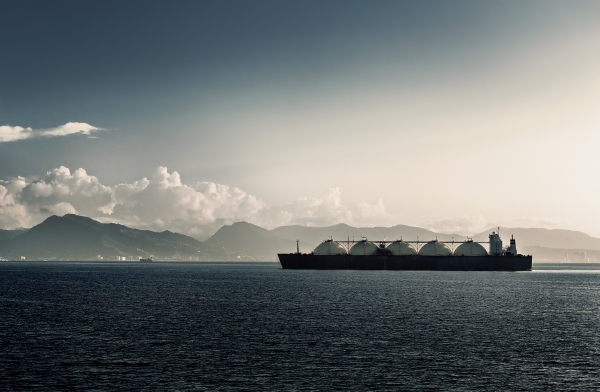LNG 'Could Wipe out East European Price Premium'
There's every possibility that the European Union will be able to end Russia's dominant position in gas supply in southeast Europe by 2020, according to deputy director-general for energy at the European Commission, Christopher Jones.
Addressing a May 26 seminar on how LNG might help to meet the Danube basin's gas needs. he said southeast European countries, nearer to Russia, were charged 16% more for their gas in 2015 than EU countries further west.
This led to a difference in price amounting to €1.3bn last year, while the year before, southeast European countries paid 20% more for their gas, or €2bn.
Dominant suppliers charge more because they can, said Jones, noting that when Lithuania built its LNG import terminal in 2014 "the day it opened a terminal, costing €400-500mn [for a 10-year charter of the ship-based facility] Russia reduced its gas price by 24% in a heartbeat."

"Klaipeda has repaid itself several times over today," he told the May 26 event at Hungary's permanent representation (or embassy) to the EU in Brussels.
However observers have said that the fall in oil prices has also meant dramatically lower prices for customers with oil-indexed contracts, which are typically in regions remote from hubs, such as the Baltic states and southeast Europe.
The central and southeast Europe gas connectivity working group, Cesec, had been "incredibly successful" in proposing seven or eight projects that, if built, could deliver three or four sources of gas to countries in southeast Europe, said Jones: "Cesec had said 'We are going to build these projects'."
Jones said the total cost of those Cesec projects was €4bn, that most will be profitable, so would not need that much in public subsidy, so it was not difficult to see how quickly the investment could be recouped.
"We will see continued low LNG prices for the foreseeable future, unless there is a global political event," he forecast. "The LNG market is global, and deep, with projects that are committed and under development," referring to an upcoming "explosion of US LNG supply.
"All we have to do by 2020 is construct the Cesec projects," argued Jones: "They would lead to price reductions. Over the past two years they would have led to €3.3bn of lower prices." That's why EU commissioners Maros Sefcovic and Miguel Arias Canete and the EC energy directorate are "pushing this very hard, as they bring every possibility that we will be able to end the dominant position of the dominant supplier" to the region.
Jones later told NGE that the Croatian Krk LNG terminal project is among the Cesec projects, but his presentation did not list others.
A subsequent speaker, Peter Kaderjak, director of the Regional Centre of Energy Policy Research (REKK) identified some Cesec projects most likely to lead to lower prices to southeast Europe. They are: the Krk LNG terminal proposal in Croatia; Interconnector Greece Bulgaria (IGB) with or without a second Greek LNG import terminal (and coupled to onward pipe links in Bulgaria and to Romania); and IGB working with TAP (Trans Adriatic Pipe).
However his analysis showed that investments in LNG import and regas capacity, and ancillary pipelines, could become stranded assets if the Gazprom-led Nord Stream 2 project to double existing NS capacity from 55 to 110bn m³/yr were to go ahead.
NS2 is not asking for EU subsidy, he noted, and thus could be developed on a purely commercial basis. Kaderjak however said that, if NS2 were built, central European gas prices will stay high or increase. Longer term this might increase the attractiveness of investing in new infrastructure, in order to bring LNG regas flows into the region which, he said, explains why TSOs (gas transmission system operators) "aren't entirely unhappy" with the NS2 proposal.
"But from a social welfare perspective, NS2 is problematic," concluded Kaderjak.
It would increase price divergence in eastern Europe, leading to bottlenecks between Germany and the Czech Republic and between the Czech and Slovak republics, with Russian contractual gas flowing in the opposite direction keeping spot gas out of the region. That would be a retrograde step, given that the Czech market in recent years had become an extension of the German market, enjoying the same pricing benefits from spot supplies as Germany.
Mark Smedley


